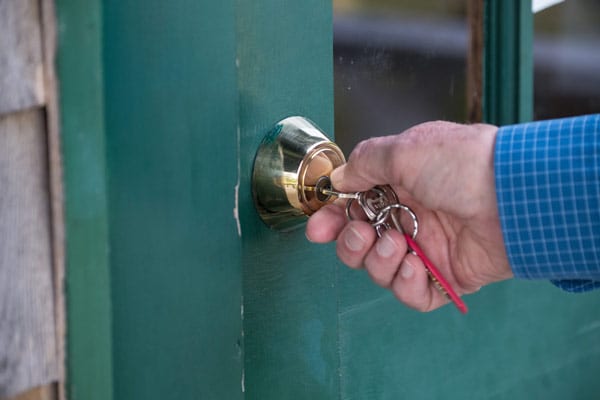
October 31; Rewire.News
On November 6th, the people of Maine will have a chance to vote on a referendum that would provide home care to any adult unable to perform at least one activity of daily living—for example, one who is unable to bathe, dress, or eat—without assistance. Maine’s proposed law—known on the ballot as Question 1—is the first in the nation to propose a universal home care benefit. “If passed, [the law] will guarantee that every senior, every Mainer with a disability, gets the care they need to stay at home,” Mike Tipping, communications director at Mainers for Homecare, told Bryce Covert at Rewire.News.
Mainers for Homecare is the coalition behind the ballot measure. The measure has the support of over 60 organizations, according to the organization’s website, including the Maine AFL-CIO, Maine Council of Churches, Maine Small Business Coalition, and the Maine Direct Care Alliance.
Maine has the distinction of having the oldest population in the country, with a median age of 44.6. By 2030, the number of residents over 65 will double. Families are already confronting a major gap in our health care system; the kind of in-home services that help elders remain safe, healthy, and independent are not covered by Medicare. Only if you are living in poverty—and thus eligible for Medicaid—can you access this type of long-term care support. For Maine’s middle-income families who have to pay out of pocket, the cost of home care—averaging $50,000 per year—is prohibitive.
The ballot measure would establish a trust fund for universal, free home care, supported by revenue from a new 3.8 percent tax on incomes over $128,400. Income above this level is not subject to Social Security tax, so the burden on the two percent of high-wage earners who would pay the tax is small. By contrast, the public benefit is considerable: it is expected that the tax would generate $180 million a year. The University of Maine’s Muskie School of Public Service estimates some 21,000 people will qualify for services under the law.
Because of Governor Paul LePage’s persistent refusal to implement a previous ballot initiative to expand Medicaid, the new trust fund would be controlled not by the legislature but by a democratically elected board which would include three direct care workers, three service recipients, and three representatives from home care agencies. The Universal Home Care Board would be responsible for ensuring that 77 percent of the funds allocated to the trust go to workers’ wages, an effort to use the law to improve the quality of caregiving jobs.
Sign up for our free newsletters
Subscribe to NPQ's newsletters to have our top stories delivered directly to your inbox.
By signing up, you agree to our privacy policy and terms of use, and to receive messages from NPQ and our partners.
Direct care work is among the fastest-growing occupations in the state—as it is nationally. But poor wages—averaging around $11 per hour—inhibit recruitment and lead to high turnover, as NPQ’s Amy Costello has reported. Maine currently has such a severe shortage of home care workers that 6,000 hours of needed care go unstaffed each week. The hope is that by bringing more money into the system, wages will rise to help meet the demand for care.
Maine’s Question 1 is supported by Caring Across Generations, a nonprofit organization that is building a movement around the need for quality long-term supports and services. Caring Across Generations also worked with Hawaii advocates to pass the Kupuna Caregivers Act in 2017, the first publicly funded long-term care program. Hawaii’s law, however, is considerably narrower than Maine’s Question 1, providing a $70 per day stipend to family caregivers who remain in the workforce. The $70 can be used to pay for home care services, adult day care, or other supports. By narrowing the scope of the legislation, a tax hike was avoided, allowing the bill to move through the legislature.
Question 1 is also controversial because it raises taxes. Opponents argue that the tax will discourage health care professionals, also in short supply, from moving to Maine. “We have a workforce crisis already, and this increase—which would make our income tax rate among the highest in the country—would be a disaster,” said Jeffrey Austin, vice president of government affairs for the Maine Hospital Association, told Judith Graham of Kaiser Health News. (Of course, one might question why doctors earning six-figure salaries should be favored over homecare workers earning $11 an hour).
The Home Care and Hospice Alliance, a trade association, has also come out against the ballot initiative, claiming it will cost too much to provide universal coverage, regardless of financial need. AARP has remained neutral but has expressed reservations concerning the funding mechanism.
Nonetheless, for families in need of care, the ballot initiative could be a lifeline. Rick Alexander, a 70-year-old retired school librarian, is caring for his wife, Debbie, who is 64 and has multiple sclerosis. Alexander told Judy Graham, “We brought in some paid help years back, but we couldn’t do that for very long: it’s too expensive.” As her condition worsens, Alexander worries that the physical and emotional challenges will make it impossible for him to care for Debbie on his own, at home.
“It’s been emotional,” said Tipping from Mainers for Homecare. “I have never had so many people tell such heartbreaking stories when they’re signing a petition. Everyone has a caregiving story.”—Karen Kahn













